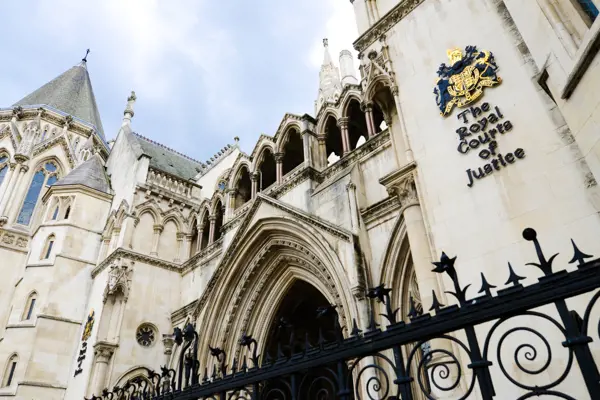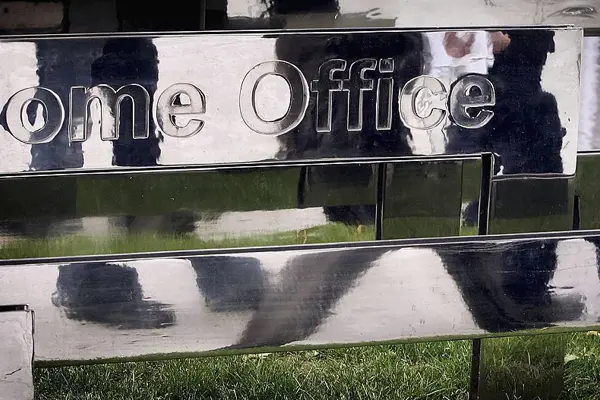
Climate change litigation – too hot to handle?
Jonny Buckley discusses the latest climate change lawsuits in the US and the barriers to litigating such claims in the UK courts
Posted on 17 October 2017
Recent climate change lawsuits in the US
Last month, the Californian cities of San Francisco and Oakland filed lawsuits in state courts against five fossil fuel producers (Chevron, ConocoPhillips, ExxonMobil, Shell, and BP), alleging that they knowingly released greenhouse gas emissions into the atmosphere, thereby contributing to climate change and the resultant damage caused to their communities.
The plaintiffs are asking for a fund to be set up to offset the billions of dollars in damage that will be caused by the rise in sea levels.
These lawsuits followed on from similar public nuisance lawsuits filed in July by three San Diego coastal counties alleging that fossil-fuel companies have harmed the counties by contributing to rising sea levels, resulting in more frequent and severe flooding. The plaintiffs in these cases are also seeking punitive damages.
The lawsuits are part of a growing trend of people turning to the courts to try to hold government and companies accountable for the effects of climate change. The costs of climate change related damage are increasing, as the damage requires expenditure on planning for and adapting to the effects of climate change. Attention is now understandably turning to who bears responsibility for the damages and associated costs.
Lawyers filing these suits claim that their chances of succeeding are becoming greater due to improved scientific data, which can more precisely map which locations will be inundated or at risk of greater flooding if there is a rise in sea levels.
Furthermore, earlier this year it was claimed that Exxon Mobil knew about the effects of climate change as far back as the 1980’s when it commissioned internal research showing ties between fossil fuels and climate change, but it allegedly continued to mislead investors and the public about the role of fossil fuels in contributing to global warming and the effect this would have on the company’s assets.
Such evidence will bolster the plaintiffs’ case and their claim that the damage from climate change was foreseeable, and may also assist their claims for punitive damages.
Barriers to litigating climate change in the UK
Could similar lawsuits be brought here in the UK? In theory, claims for public nuisance or product liability could be brought here against fossil fuel producers. Nevertheless, such claims are highly ambitious and would have to overcome some significant legal and practical hurdles.
Causation is the most obvious and greatest challenge to a successful claim. The claimants would have to be able to link the emissions of one or several companies to the damage caused by climate change.
Defendants would argue that complicity in climate change is shared globally by other large industries and that one or a handful of companies cannot be held liable for the effects of global warming.
To date, causation has not yet been fully tested in the US courts, and has only been examined for the purposes of determining whether plaintiffs have standing to bring these types of claims, which is a lower threshold than at the merits stage.
In Massachusetts v EPA 549 U.S. 497 (2007), in granting standing to Massachusetts and other states to challenge the EPA’s refusal to regulate greenhouse gas emissions from new motor vehicles, the US Supreme Court recognised that there was scientific consensus around climate change, and implicitly acknowledged a causal connection between man-made greenhouse gas emissions and global warming.
However, proving causation at the merits stage of a claim would be more difficult, particularly in relation to the question of how to apportion liability.
One possibility that has been suggested in the US is to adopt the ‘market share’ approach to apportioning liability, which has been used in some product liability lawsuits. Under this approach, liability for harm caused by a defective product is based on each defendant’s share in the manufacture and sale of the product. This method could be applied to greenhouse gas producers, according to their share of global CO2 emissions.
A recent study has estimated that the top five US greenhouse gas producing companies cumulatively represent 9.4 per cent of global emissions from 1751 to 2010. The plaintiffs in the San Diego case calculate that the defendants are collectively responsible for more than 20 per cent of all carbon dioxide and methane emitted between 1965 and 2015, when the use of fossil fuels has historically been at its highest.
Potential claimants would also have to convince a litigation funder to fund their claims, as well as obtaining cover against liability for adverse costs.
For this reason, funding such a large and complex claim against major corporations with armies of lawyers and deep pockets would be very ambitious.
For now, the type of case that is more likely to succeed here is one that seeks to hold the government accountable for its legislative or policy commitments. For example, the Climate Change Act 2008 sets legally binding targets for emissions.
A judicial review could be brought if targets or deadlines are missed. Indeed, Client Earth has been successful in recent years in challenging the government in relation to illegal air pollution levels in the UK. In April 2015, the Supreme Court ordered the government to come up with a plan to reduce air pollution to within legal limits “as soon as possible”.
The resulting plan was based on over optimistic pollution modelling and was so poorly implemented that ClientEarth brought a further Judicial Review against the government. In November 2016, the High Court ruled that the Environment Secretary had failed to take measures that would bring the UK into compliance with the law “as soon as possible”.
Conclusion
At present, the possibility of class action style claims being brought in UK courts against fossil fuel companies, similar to those filed in California, remains remote. Claimants would face near insurmountable legal hurdles, in addition to difficulties securing funding for such claims.
However, the pace of climate change litigation is picking up around the world, and the science that links the effects of climate change to human activity is improving. It will be interesting to see how far these lawsuits travel through the US courts, and if any legal precedents are set, particularly in relation to causation and how the courts approach the question of apportioning liability.
Last month, the Californian cities of San Francisco and Oakland filed lawsuits in state courts against five fossil fuel producers (Chevron, ConocoPhillips, ExxonMobil, Shell, and BP), alleging that they knowingly released greenhouse gas emissions into the atmosphere, thereby contributing to climate change and the resultant damage caused to their communities.
The plaintiffs are asking for a fund to be set up to offset the billions of dollars in damage that will be caused by the rise in sea levels.
These lawsuits followed on from similar public nuisance lawsuits filed in July by three San Diego coastal counties alleging that fossil-fuel companies have harmed the counties by contributing to rising sea levels, resulting in more frequent and severe flooding. The plaintiffs in these cases are also seeking punitive damages.
The lawsuits are part of a growing trend of people turning to the courts to try to hold government and companies accountable for the effects of climate change. The costs of climate change related damage are increasing, as the damage requires expenditure on planning for and adapting to the effects of climate change. Attention is now understandably turning to who bears responsibility for the damages and associated costs.
Lawyers filing these suits claim that their chances of succeeding are becoming greater due to improved scientific data, which can more precisely map which locations will be inundated or at risk of greater flooding if there is a rise in sea levels.
Furthermore, earlier this year it was claimed that Exxon Mobil knew about the effects of climate change as far back as the 1980’s when it commissioned internal research showing ties between fossil fuels and climate change, but it allegedly continued to mislead investors and the public about the role of fossil fuels in contributing to global warming and the effect this would have on the company’s assets.
Such evidence will bolster the plaintiffs’ case and their claim that the damage from climate change was foreseeable, and may also assist their claims for punitive damages.
Barriers to litigating climate change in the UK
Could similar lawsuits be brought here in the UK? In theory, claims for public nuisance or product liability could be brought here against fossil fuel producers. Nevertheless, such claims are highly ambitious and would have to overcome some significant legal and practical hurdles.
Causation is the most obvious and greatest challenge to a successful claim. The claimants would have to be able to link the emissions of one or several companies to the damage caused by climate change.
Defendants would argue that complicity in climate change is shared globally by other large industries and that one or a handful of companies cannot be held liable for the effects of global warming.
To date, causation has not yet been fully tested in the US courts, and has only been examined for the purposes of determining whether plaintiffs have standing to bring these types of claims, which is a lower threshold than at the merits stage.
In Massachusetts v EPA 549 U.S. 497 (2007), in granting standing to Massachusetts and other states to challenge the EPA’s refusal to regulate greenhouse gas emissions from new motor vehicles, the US Supreme Court recognised that there was scientific consensus around climate change, and implicitly acknowledged a causal connection between man-made greenhouse gas emissions and global warming.
However, proving causation at the merits stage of a claim would be more difficult, particularly in relation to the question of how to apportion liability.
One possibility that has been suggested in the US is to adopt the ‘market share’ approach to apportioning liability, which has been used in some product liability lawsuits. Under this approach, liability for harm caused by a defective product is based on each defendant’s share in the manufacture and sale of the product. This method could be applied to greenhouse gas producers, according to their share of global CO2 emissions.
A recent study has estimated that the top five US greenhouse gas producing companies cumulatively represent 9.4 per cent of global emissions from 1751 to 2010. The plaintiffs in the San Diego case calculate that the defendants are collectively responsible for more than 20 per cent of all carbon dioxide and methane emitted between 1965 and 2015, when the use of fossil fuels has historically been at its highest.
Potential claimants would also have to convince a litigation funder to fund their claims, as well as obtaining cover against liability for adverse costs.
For this reason, funding such a large and complex claim against major corporations with armies of lawyers and deep pockets would be very ambitious.
For now, the type of case that is more likely to succeed here is one that seeks to hold the government accountable for its legislative or policy commitments. For example, the Climate Change Act 2008 sets legally binding targets for emissions.
A judicial review could be brought if targets or deadlines are missed. Indeed, Client Earth has been successful in recent years in challenging the government in relation to illegal air pollution levels in the UK. In April 2015, the Supreme Court ordered the government to come up with a plan to reduce air pollution to within legal limits “as soon as possible”.
The resulting plan was based on over optimistic pollution modelling and was so poorly implemented that ClientEarth brought a further Judicial Review against the government. In November 2016, the High Court ruled that the Environment Secretary had failed to take measures that would bring the UK into compliance with the law “as soon as possible”.
Conclusion
At present, the possibility of class action style claims being brought in UK courts against fossil fuel companies, similar to those filed in California, remains remote. Claimants would face near insurmountable legal hurdles, in addition to difficulties securing funding for such claims.
However, the pace of climate change litigation is picking up around the world, and the science that links the effects of climate change to human activity is improving. It will be interesting to see how far these lawsuits travel through the US courts, and if any legal precedents are set, particularly in relation to causation and how the courts approach the question of apportioning liability.


